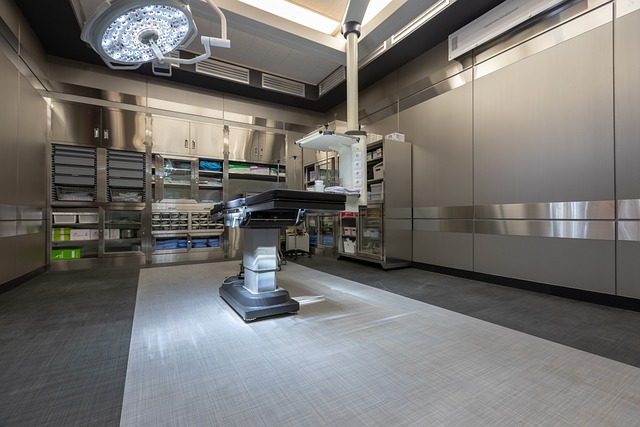October 1st, 2024
When setting up a dedicated server, selecting the right operating system (OS) is crucial for performance, security, and overall functionality. The decision typically comes down to two main options: Linux or Windows. For those opting for Linux, there's an additional choice between distributions, with AlmaLinux and Ubuntu being two popular ones. Let’s dive into each option and what to consider when making your decision.
1. Linux vs. Windows: What’s Right for You?
The decision between Linux and Windows is largely determined by your use case, application needs, and comfort with each system. Here’s a breakdown of their key features:
Linux
- Open Source & Free: Linux is an open-source OS, meaning it’s free to use. This can make it a more cost-effective choice for those on a budget.
- Control and Flexibility: Linux gives users a lot of control over server environments. It’s highly customizable, ideal for users who need specific configurations and are comfortable with command-line interfaces.
- Security: Generally considered more secure due to its design and open-source nature, which allows developers worldwide to constantly review and fix vulnerabilities.
- Popular Distributions: AlmaLinux, Ubuntu, CentOS, and Debian are some common Linux distributions for dedicated servers.
- Web Hosting & Development: Linux dominates web hosting due to compatibility with LAMP stack (Linux, Apache, MySQL, PHP), making it ideal for web developers and sites powered by PHP, Python, and Ruby.
- Software Compatibility: Linux is ideal if your applications or databases run on open-source technologies. However, some enterprise-level software may be unavailable or harder to configure compared to Windows.
Windows
- Licensed & Paid: Unlike Linux, Windows Server requires a paid license, which could increase your setup costs.
- Ease of Use: Windows is generally more user-friendly, with a familiar graphical interface and broad compatibility with enterprise software such as Microsoft SQL Server, Exchange, and ASP.NET applications.
- Remote Desktop Access: Windows offers native support for remote desktop access, which simplifies server management for those who prefer a graphical interface.
- Compatibility: If your applications depend on Microsoft products (e.g., .NET framework, Active Directory, or IIS), Windows is the obvious choice.
- Security: Windows is secure but often targeted by malware and requires more frequent updates and patches.
2. Linux Distribution: AlmaLinux vs. Ubuntu
For those leaning toward Linux, the next choice involves selecting the best distribution for your needs. Two common options for dedicated servers are AlmaLinux and Ubuntu.
AlmaLinux
- CentOS Replacement: AlmaLinux was designed as a free, open-source replacement for CentOS after its end-of-life announcement. It is community-driven and backed by enterprise support.
- Enterprise Stability: Like CentOS, AlmaLinux is known for its stability and reliability in enterprise environments. It’s ideal for mission-critical workloads and users who want long-term support.
- Compatibility: It’s fully binary-compatible with Red Hat Enterprise Linux (RHEL), meaning it’s ideal for users with prior experience in RHEL or CentOS.
- Minimalist: AlmaLinux tends to be more minimal out of the box compared to Ubuntu, which can be beneficial for experienced admins who want full control over what’s installed.
Ubuntu
- User-Friendly: Ubuntu is known for its user-friendliness and ease of use, making it popular for beginners and experienced users alike.
- Frequent Updates: Ubuntu offers frequent updates and short-term support (for 9 months) along with long-term support (LTS) versions, which are supported for 5 years. This ensures a balance between staying up-to-date and maintaining stability.
- Community & Support: Ubuntu has one of the largest communities and a wealth of documentation, tutorials, and forums to help troubleshoot issues.
- Development Focus: Ubuntu tends to have a broader focus on desktop and cloud environments, but its server version is highly reliable and versatile, making it a great choice for a wide range of server tasks.
- Package Management: Ubuntu uses the APT package manager, which some find easier to use than AlmaLinux’s RPM-based package management.
3. Key Considerations When Choosing Between AlmaLinux and Ubuntu
- Stability vs. Features: If you're looking for a more traditional, stable enterprise-grade system, AlmaLinux may be your choice. For more frequent updates and a robust support community, Ubuntu could be the better option.
- Support & Ecosystem: If you need enterprise-grade support and binary compatibility with RHEL, AlmaLinux is preferable. Ubuntu, on the other hand, offers a broader ecosystem and excellent community support.
- Learning Curve: For experienced Linux users familiar with CentOS or RHEL, AlmaLinux offers a seamless transition. Ubuntu, with its popularity and documentation, is generally easier for beginners.
- Applications & Compatibility: Consider what kind of applications you’ll be running. Ubuntu is better suited for cloud environments and developers who want the latest packages, while AlmaLinux is often used in stable, long-term projects like database hosting and web services.
Final Thoughts
Choosing the right OS for your dedicated server depends on your specific needs, technical expertise, and the software you plan to run. Linux is often the go-to for those who need control, flexibility, and open-source compatibility, while Windows is favored for its ease of use and compatibility with Microsoft enterprise products. If you choose Linux, AlmaLinux offers enterprise-grade stability, while Ubuntu is ideal for users who prefer frequent updates and a large support community.
Take time to assess your project requirements before making a decision. The right choice will ensure your server runs smoothly, efficiently, and securely.
Unlock Peak Performance with Sectorlink's Managed Dedicated Servers
Looking for reliability, power, and expert support? Sectorlink's managed dedicated servers offer unmatched performance and security for your business needs.
Get Started Today! and experience top-tier hosting with 24/7 support.

